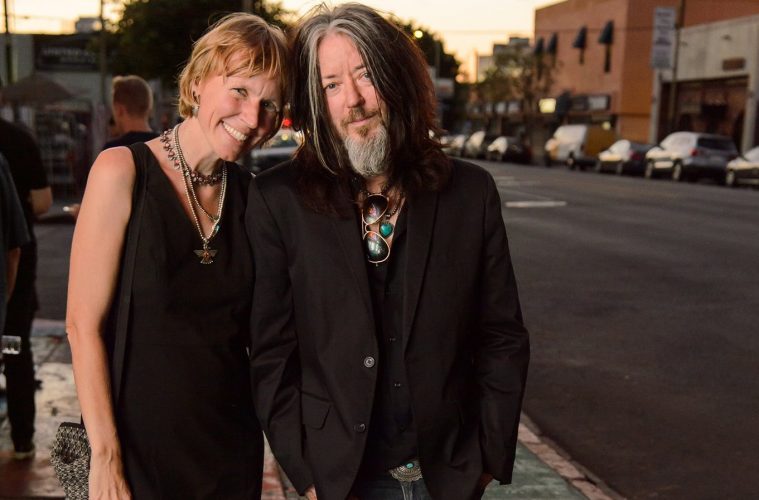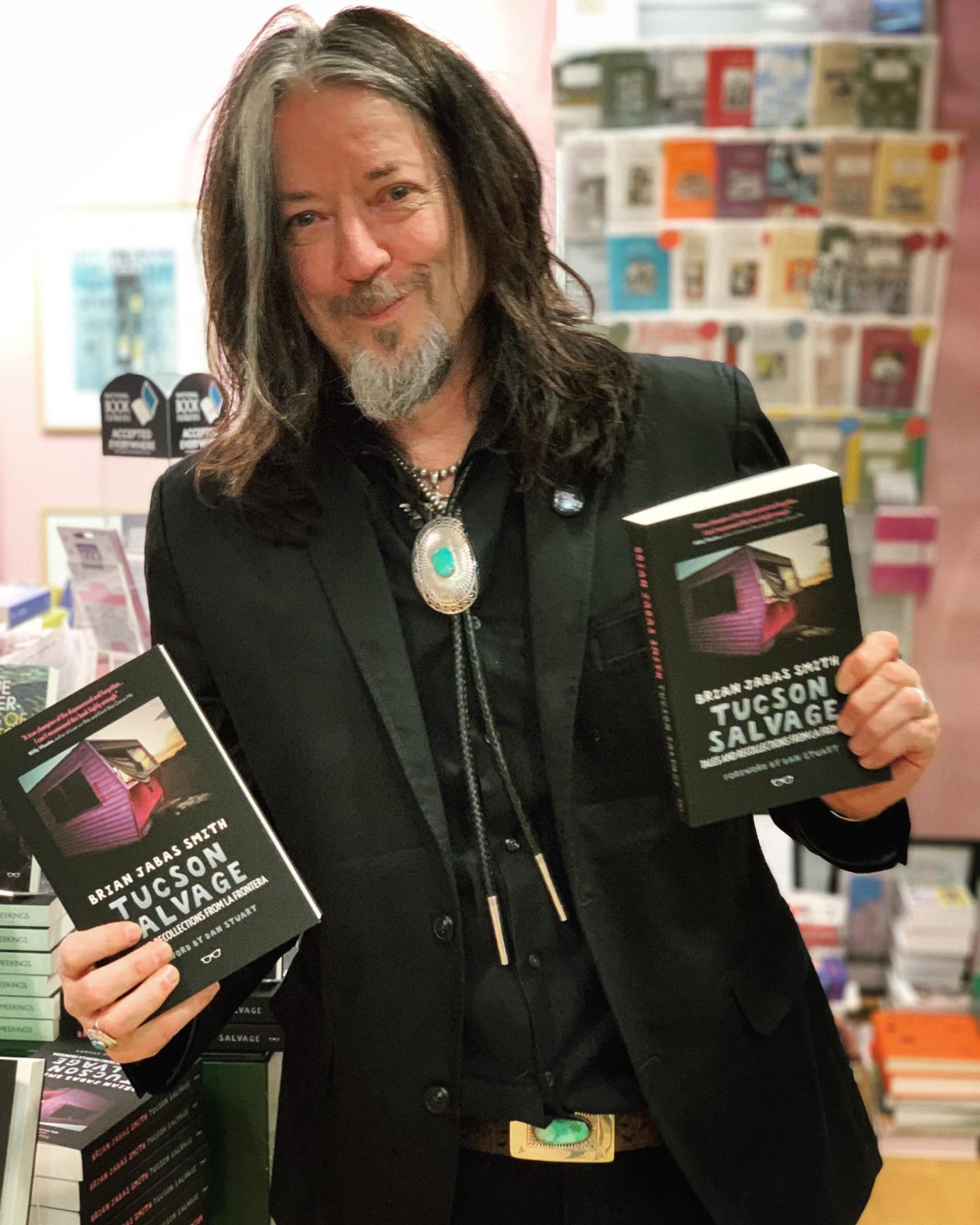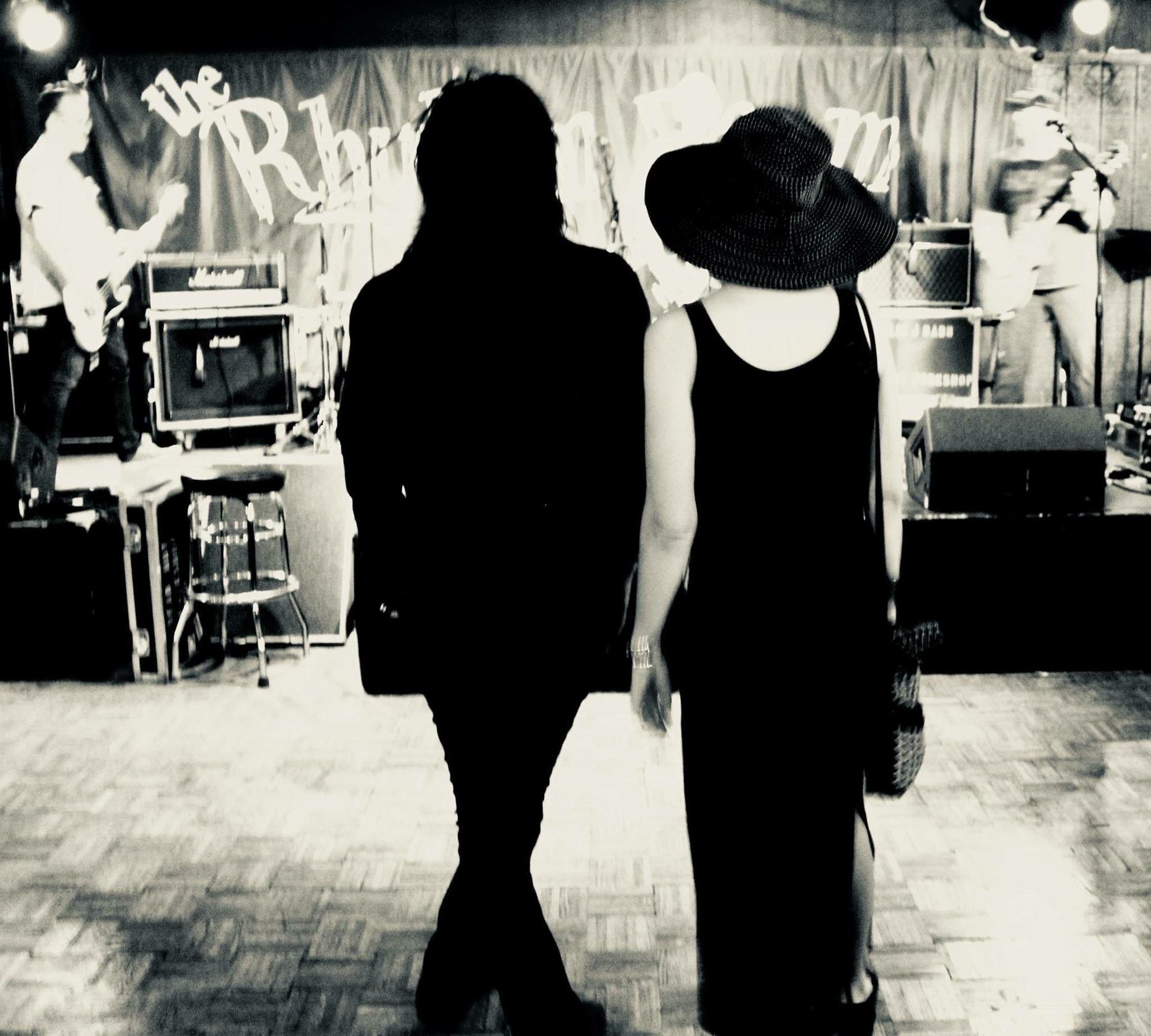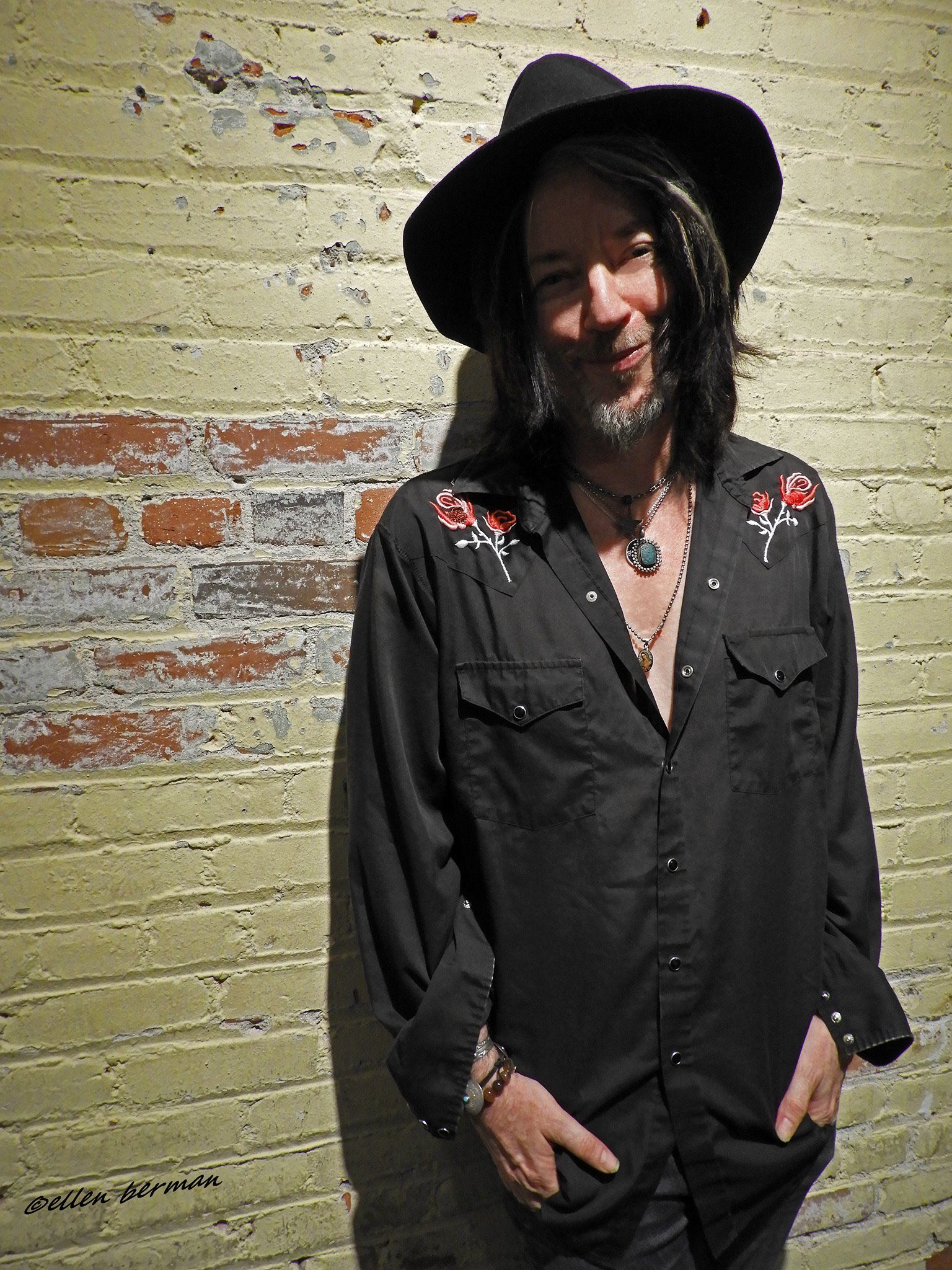The human equation probably goes something like this: Life itself (the act of being alive) is multiplied by struggle and divided by fear, stress and possibly addiction, before adding a dash of joy, a dollop of heartache and a smear of inevitable pain, all before whatever karma you deserve does its thing. Between birth and death there are work, sleep, the potential for procreation and hopefully a fair amount of creativity and play. And with hard work and luck, there is the possibility of success.
There is also love, and for this we play our roles in the equation. And if we are even luckier, we get our fair share.
No one documents lives, mathematical and otherwise, like Brian Jabas Smith. Many of us in the Phoenix area know Smith from his “pre-Jabas” days as a writer and musician. The fifty-something Tucson native penned multiple columns for Phoenix New Times and fronted well-received bands like The Pills, Gentlemen After Dark and Beat Angels before moving eastward to work for the Detroit Metro Times and then returning to Arizona in 2015 to settle again in Tucson.
During the last three years at home in Arizona, Smith has been prolific. He published his first novel, Spent Saints & Other Stories, in 2017 on Ridgeway Press. It is a sublime combination of disturbing, harrowing, beautiful and inspiring stories that naturally allow the reader to experience the lives of its characters with both grace and brutal honesty. Semi-autobiographical in nature, Spent Saints afforded Smith an opportunity to travel all around the United States doing readings for a growing array of fans.
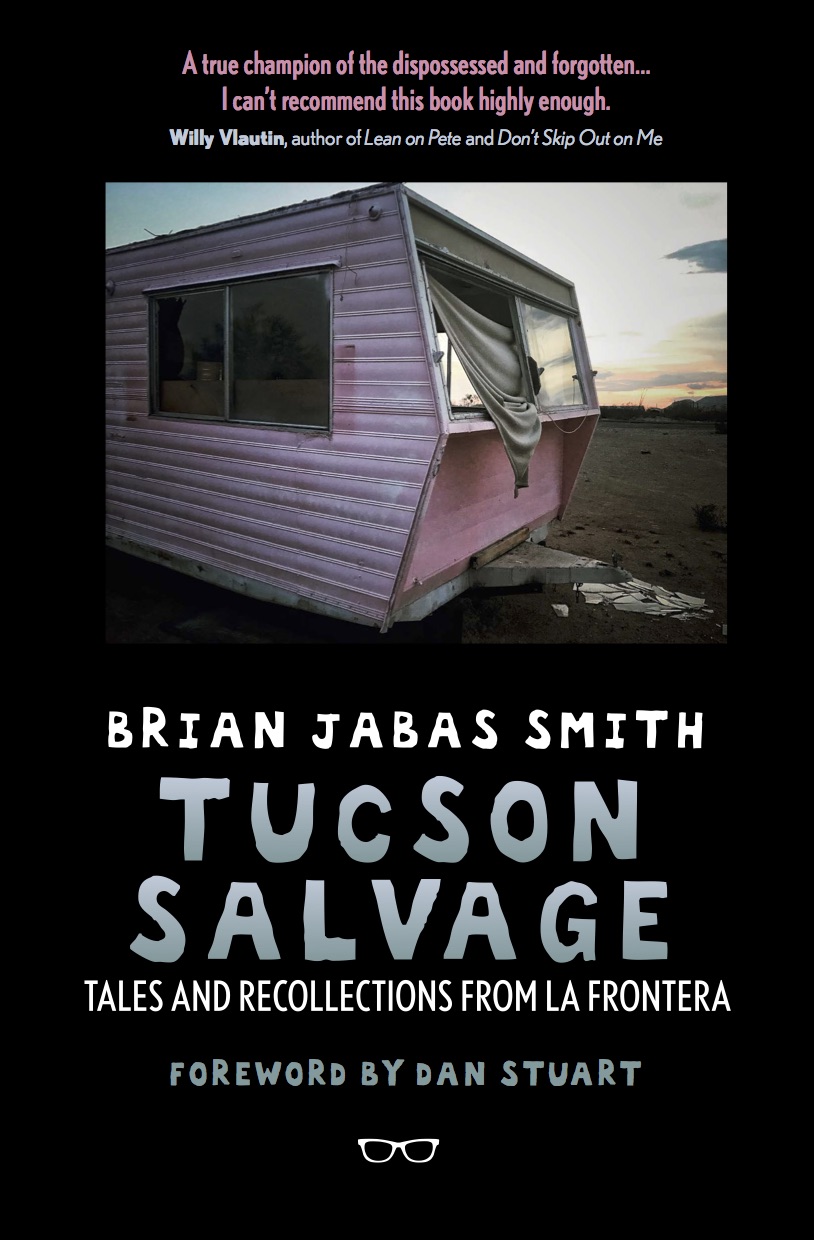 As a follow-up to his acclaimed first novel, Smith has partnered with the United Kingdom’s Eyewear Publishing to put out Tucson Salvage: Tales and Recollections from La Frontera in 2018. This book is a collection of Smith’s Tucson Weekly column of the same name that garnered a liberal amount of attention in its own right. Smith captures a lyrical portrait of Tucson, speaking volumes about the lives of some of the city’s most interesting and often heartbreaking citizens.
As a follow-up to his acclaimed first novel, Smith has partnered with the United Kingdom’s Eyewear Publishing to put out Tucson Salvage: Tales and Recollections from La Frontera in 2018. This book is a collection of Smith’s Tucson Weekly column of the same name that garnered a liberal amount of attention in its own right. Smith captures a lyrical portrait of Tucson, speaking volumes about the lives of some of the city’s most interesting and often heartbreaking citizens.
Smith and his wife, Maggie Rawling Smith, have partnered to bring these stories to life in film, as well. Rawling Smith, a Phoenix native, is also a writer, but most of her experience has been in screenwriting and working behind a camera; she’s also a longtime music fan. The power of their union is palpable, and Maggie clearly appreciates her husband’s ability to bring these stories to life through words as much as he appreciates her ability to give them visual form in film.
On Sunday, November 11, the duo screened Rawling Smith’s documentary at the Valley Bar in Phoenix to an excited audience. The film features five stories from Tucson Salvage and will be screened at several film festivals in 2019.
We caught up with the Smiths over the phone to learn more about their story, where they came from and where they are headed. It’s quite a tale indeed.
JAVA: So how did the two of you meet?
Brian Jabas Smith: I was living in Tucson, and I got a call out of the blue to edit her novel. That’s how it happened. She was living in Los Angeles, and I just moved back to Tucson. We started talking, and we got her hired on to do all the publicity for Spent Saints, which was a major coup because she’s amazing at that, and we just sort of fell in love. It’s like I always say, “The cook always gets the waitress.”
JAVA: Was there a romantic feeling there from the beginning, or did that develop over time?
BJS: Well, I didn’t know this, but when Maggie was 16, she’d sneak in to see Beat Angels shows in Phoenix. I had no idea. Now that I’ve done the math, I remember seeing her there on the all-ages side of the venues, all wide-eyed and nervous.
Maggie Rawling Smith: (Laughs) Actually my book is centered (on a club) not unlike Long Wong’s, which is why I wanted Brian to edit it, and it is written from the perspective of the youngest kid in the room. And he was a musician, so it worked out.
JAVA: Did you have Brian in mind all along to edit?
MRS: I didn’t even know he was editing until one day on Facebook he posted it, so I was like, aha.
BJS: When I moved back from Detroit I was hurting. I had no money. I was hustling for work. You know how it is.
JAVA: I do. What is the title of your book, Maggie?
MRS: The Most Incredible Wings.
JAVA: Is that your only book?
MRS: Yeah. Otherwise I am more of a screenwriter. I’ve enjoyed co-adapting Brian’s other work. We did a web series for Spent Saints, and then we did this documentary (for Tucson Salvage). My novel will come out after we are done with Tucson Salvage and the web series adapting stories from Spent Saints. The documentary is already fully made, and it is in festivals right now. We are trying to get as much momentum as possible and then sell the web series.
JAVA: Has the last few years seemed like a whirlwind for both of you?
BJS: Yeah, it does. We have a kid (Reece, who is five), and I have to work and I’m writing all the time. I’m doing these columns in Tucson Weekly. When you do a lot of writing for a weekly or a newspaper, it feels like it comes out and it’s gone. I want to make those columns count some way or another, because I work hard on them. So, the book. And it gives me something else to do.
JAVA: How has the traveling impacted your perspective on your work?
BJS: From a writing point of view, it will always be focused on people who are hurting in one way or another. Everywhere we go, these people are the same. With the failing middle class and this president, (as) I’ve been traveling around on the last book tour, I realize the stories are very universal.
JAVA: There is such empathy in your writing, Brian, and with the imagery of the film, Maggie, I feel like Tucson is a sixth character in the story.
BJS: That’s the point. All my favorite writers growing up made place a part of the story. Tucson is so powerful in that way. Phoenix is, too, in a weird way. They both have this end-of-the-world quality. Step ten miles beyond their borders and you could die. It’s hot, there’s no water. You could die. It makes the whole story slightly more profound in a way.
JAVA: With the stories you share from these folks, is it hard to turn off your brain and deal with your own daily stuff and not worry about them?
BJS: Yeah, I get close to a lot of the people I write about. But not everyone is so broken. Honestly, there were times in my life that I was homeless and strung out on drugs, and it was not good. It may sound pretentious, but I kind of wish someone would have written about what I was going through. I’ve heard from some of the people, though, how someone read about them and helped them. Good things happen in that way. But that’s not the point. The point is just telling stories. There is never any kind of agenda. It’s just journalism in a sense, just observation with no judgment.
JAVA: How did you choose which stories to use for the documentary?
BJS: We had about fifty or sixty stories to choose from, and we just chose – Maggie sort of chose. We wanted to have a couple of women and a couple of men and maybe a trans person. Tucson is really diverse, so we wanted to show the population of Tucson.
MRS: We chose people who were willing to speak. We tried to pick subjects that were really interesting to see on film. We went down to Wild Horse Pass (to get footage for the Andy Perez segment) and saw nine rounds of UFC fighting. I saw a guy’s tooth get knocked out. I was sprayed with blood and almost threw up and had to leave a few times. It was really intense.
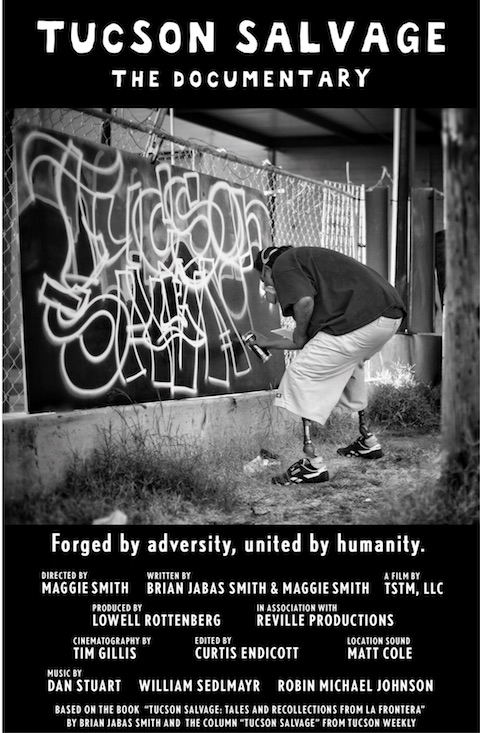 JAVA: How is it, working together so closely on such a personal thing, not just for you as a married couple, but for the subjects of the stories?
JAVA: How is it, working together so closely on such a personal thing, not just for you as a married couple, but for the subjects of the stories?
BJS: That’s a really good question. It’s never easy, as you can imagine.
MRS: (Laughs)
BJS: Maggie is really even keeled, and I’m not. I get really angry at times, and I feel bad about it.
JAVA: Maggie, did you have a connection with Tucson before you met Brian?
MRS: Tucson really reminds me of my favorite parts of Phoenix, you know, when I was a kid growing up in the ’80s as opposed to now. Every time I came and visited Brian, I fell a little more in love with this place. It is so close to the border, and I’m a big human rights activist in general. They have a great gay community, LGBTQ community, and a great immigrant community to be able to help out, so that, combined with a university and being a cool, small blue blob in a red state, made me happy.
JAVA: Tucson Salvage is such a great title. Did you come up with that?
BJS: I never intended this to become a book. I came to Tucson and I just wanted to write about people that I feel a connection with. Tucson Salvage was a nod to Bonnie Jo Campbell and her book American Salvage, which has been my favorite collection of short stories for decades. She wrote a blurb for Spent Saints,and I was totally honored.Tucson Salvageis just the perfect title for this thing, but American Salvage came first, and I nicked it from that.
JAVA: What message do you hope thatTucson Salvage imparts to your son as he grows up?
BJS: Compassion for humankind, empathy.
MRS: Reece is in the book.
BJS: Yeah, I wrote a story about when I first started hanging around him. It’s about – well, Maggie and I weren’t quite a couple yet, and I met this kid and he was super smart, his first language was Spanish, and he hated Kid Rock. He was two years old and he hated Kid Rock, so I thought, “This guy is awesome.” He’s a kid after my own heart. His unending curiosity is really inspiring, plus his default switch is joy and happiness. My default switch is sadness. How did I ever lose that, or did I ever have it? Kids are amazing.
 JAVA: There is a line from the documentary where one of the subjects says, “I don’t know if the free world is worth it.” Is this something that resonates with you, Brian?
JAVA: There is a line from the documentary where one of the subjects says, “I don’t know if the free world is worth it.” Is this something that resonates with you, Brian?
BJS: All the time. I ask myself this every day. I end up choosing people to write about that I’m unconsciously attracted to.
JAVA: That same person talks about the fact that the hardest thing to do is stay disciplined. At the reading you talked about having a struggle with this very thing. How hard is discipline for you?
BJS: Well, that’s funny. I used to write songs all the time, and now I can only write when I feel like it. It’s the hardest thing in the world because this is my job. I have to do it. I have to set hours where I can sit and write. If I don’t, everything falls apart and I get so depressed. Discipline is a way that I force myself to work.
JAVA: What is coming up for the documentary?
MRS: We are entering it in a bunch of film festivals. We are getting the film four-walled, which basically qualifies us for Academy Awards. It’s going to run in a theater for a week in LA in February, so the sky’s the limit. It’s a very exciting year for us.
BRS: The main inspiration for me doing Tucson Salvagein the very beginning was a reaction against so much irony in the world. Everybody is so afraid to just tell the truth about things. They have to hide behind humor and irony and sarcasm. That’s so simpleminded. It’s like white noise. I really just wanted to tell stories. Telling stories about people that are mainly ignored by other people. To me, that’s the most powerful thing in storytelling right now.

